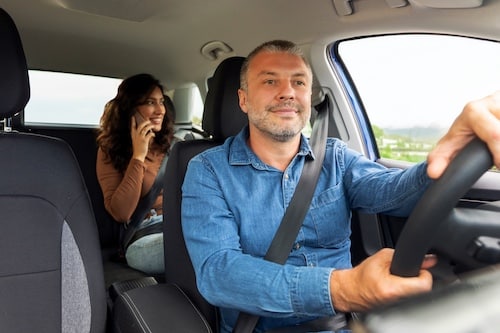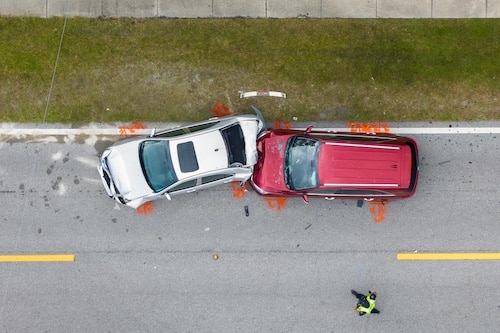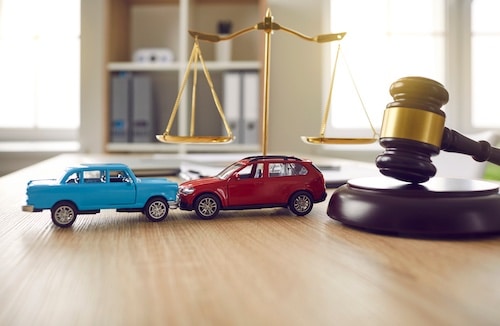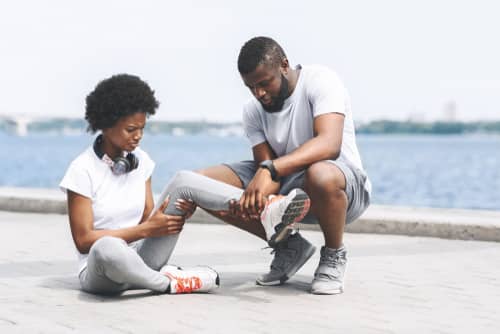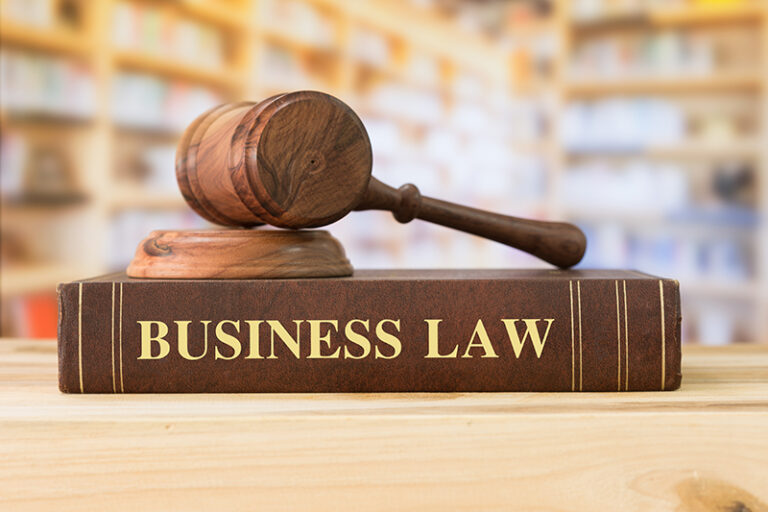Rideshare Accident Claims in Alpharetta GA
Rideshare services like Uber and Lyft have become a regular part of transportation in Alpharetta and across Georgia. With more rideshare vehicles on the road, the risk of being involved in a rideshare accident has increased. Understanding your rights under Georgia law is essential if you are a passenger, driver, or pedestrian injured in one of these accidents.
In this blog, you will learn how rideshare accident claims work in Georgia, what insurance coverage applies based on the driver’s status, and why working with an experienced Alpharetta rideshare accident attorney can help you secure fair compensation for your injuries and other losses.
Understanding the Legal Landscape in Georgia
Georgia law sets specific rules for how insurance coverage works in rideshare accident claims. Knowing these rules is important for rideshare passengers, drivers, and anyone injured in a rideshare accident in Alpharetta or other Georgia cities.
Georgia’s Rideshare Insurance Requirements
Under O.C.G.A. § 33-1-24, rideshare companies such as Uber and Lyft must provide minimum insurance coverage that changes based on the driver’s status. If the rideshare app is on but no ride request is accepted, coverage is at least $50,000 for bodily injury per person, $100,000 per accident, and $25,000 for property damage. Once a ride is accepted or a passenger is in the vehicle, coverage increases to $1 million in liability insurance along with uninsured and underinsured motorist coverage.
Impact of HB 529 on Coverage Limits
Georgia House Bill 529 changed uninsured and underinsured motorist coverage for rideshare passengers starting July 1, 2023. Before this change, passengers could access $1 million in coverage for accident related injuries. The new law reduced this to $100,000 per person and $300,000 per incident. This reduction affects how much victims can recover for medical bills, lost wages, and other losses in a rideshare accident claim.
Comparative Fault in Georgia
Georgia uses a modified comparative fault system. Under this rule, a victim can recover compensation only if they are less than 50 percent at fault for the accident. If fault is shared, the amount recovered is reduced by the victim’s percentage of fault. This rule applies to all car accident cases, including those involving rideshare services.
Motor Carrier Classification for Rideshare Companies
Under O.C.G.A. § 40-1-100, rideshare companies are considered motor carriers. This means that in some cases, a victim may be able to file a direct claim against the rideshare company’s insurance provider. This classification can make a difference in how liability and coverage are determined in rideshare accidents.
When Insurance Coverage Applies (Driver’s Status Matters)
In rideshare accident claims, the driver’s status at the time of the crash determines what insurance coverage applies. Georgia law sets clear rules for each period of a rideshare trip.
Off Duty and App Off
If the rideshare app is off, the driver is considered off duty. In this period, only the driver’s personal auto insurance applies. Most personal policies exclude coverage when the driver is engaged in rideshare services, so victims may face limited recovery options if the driver’s policy does not provide coverage.
App On and Waiting for a Ride Request
When the app is on and the driver is waiting for a ride request, rideshare companies provide limited coverage. Georgia law requires at least $50,000 for bodily injury per person, $100,000 per accident, and $25,000 for property damage. The driver’s personal auto insurance may still be the primary coverage, but the rideshare company’s policy can provide coverage if the driver’s insurance company denies the claim.
En Route to Passenger or Transporting Passenger
Once the driver accepts a ride request or is carrying a rideshare passenger, coverage increases significantly. Uber and Lyft provide up to $1 million in liability coverage along with uninsured and underinsured motorist protection. This period also includes contingent collision and comprehensive coverage for vehicle damage if the driver carries these coverages on their personal policy.
Why Status Impacts Rideshare Accident Claims
The driver’s status determines which insurance policy is active and the maximum compensation available. Understanding these coverage periods is critical for victims, rideshare accident attorneys, and insurance companies when evaluating liability and determining how to provide coverage for accident related injuries and other losses.
What to Do After a Rideshare Accident in Alpharetta
Taking the right steps after a rideshare accident can protect your health and strengthen your rideshare accident claim. Acting quickly can also help secure fair compensation for injuries and other losses.
Call 911 and Get a Police Report
Report the accident to law enforcement immediately. A police report documents the crash, identifies the rideshare driver, and records the driver’s status. This report is an important piece of evidence when dealing with insurance companies and rideshare accident attorneys.
Seek Medical Attention
Get medical care as soon as possible, even if injuries seem minor. Some accident related injuries appear hours or days later. Medical records link your treatment directly to the rideshare accident and support claims for medical bills, lost wages, and other damages.
Gather Evidence at the Scene
If it is safe, take photos and videos of vehicle damage, visible injuries, and the surrounding area. Save screenshots from the Uber or Lyft app showing the ride request and trip details. Collect names and contact information for witnesses.
Notify the Rideshare Company
Report the incident through the Uber or Lyft app. This starts the claims process with the rideshare company’s insurance coverage. Keep records of all communication with the rideshare company and the driver’s insurance company.
Contact a Rideshare Accident Lawyer
An experienced rideshare accident lawyer can evaluate your case, review insurance details, and handle negotiations with insurance companies. Legal representation helps victims pursue maximum compensation for bodily injury, property damage, and other losses under Georgia law.
Scope of Compensation in Rideshare Accident Claims
Victims of rideshare accidents in Alpharetta may be entitled to compensation for a range of losses. The amount and type of compensation depend on the circumstances of the accident and the insurance coverage in place.
Medical Expenses
Compensation can include the cost of emergency care, hospital stays, surgery, rehabilitation, and future medical treatment. Medical bills are often one of the largest parts of a rideshare accident claim, especially in cases involving serious bodily injury.
Lost Income and Reduced Earning Capacity
Victims can recover wages lost during recovery. If injuries prevent a return to work or reduce the ability to earn, compensation may also cover future lost income. Documentation from employers and medical providers supports these claims.
Property Damage
Claims may include the cost to repair or replace a damaged vehicle or other personal property. In cases involving contingent collision or comprehensive coverage, the rideshare company’s insurance may help provide coverage for vehicle repairs.
Pain and Suffering
Accident related injuries can cause physical pain and emotional distress. Compensation for pain and suffering reflects the impact of the accident on a victim’s quality of life.
Punitive Damages
In Georgia, punitive damages may be awarded if the driver or rideshare company acted with extreme negligence or intentional misconduct. These damages are meant to punish wrongful conduct and deter similar actions in the future.
Why You Need a Rideshare Accident Attorney in Alpharetta
Rideshare accident claims often involve multiple insurance companies and complex liability issues. A rideshare accident attorney can protect your rights and improve your chances of receiving fair compensation.
Handling Multiple Insurance Policies
A rideshare accident can involve the rideshare company’s insurer, the driver’s personal auto insurance, another driver’s policy, and your own coverage. A rideshare accident attorney can identify all possible sources of compensation and ensure each insurance company meets its obligations.
Understanding Georgia Law
Georgia law, including O.C.G.A. § 33-1-24 and O.C.G.A. § 9-3-33, sets strict rules for coverage requirements and filing deadlines. A rideshare accident attorney understands these statutes and how they affect your claim, including the two year statute of limitations for personal injury cases.
Proving Liability and Fault
A rideshare accident attorney can gather evidence, review the driver’s status, and work with experts to prove fault. This is important under Georgia’s comparative fault rule, which limits recovery if a victim is found 50 percent or more at fault.
Maximizing Compensation
An experienced attorney can calculate the full value of your claim, including medical bills, lost income, property damage, and pain and suffering. They can also pursue punitive damages when the driver or rideshare company acted with extreme negligence.
Protecting You from Insurance Company Tactics
Insurance companies often aim to limit payouts. A rideshare accident attorney can handle all negotiations and protect you from accepting less than the maximum compensation allowed under Georgia law.
Contact Hartley, Rowe, & Fowler for Help with Your Rideshare Accident Claim
If you have been injured in a rideshare accident in Alpharetta or anywhere in Georgia, our team at Hartley, Rowe, & Fowler is ready to help. An experienced rideshare accident attorney from our firm can review your case, explain your legal options, and work to secure the maximum compensation you deserve.
Contact us at 678-825-6004 for a free case consultation today!
